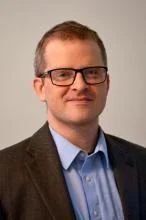Workshop "Formal Theories in Psychology - What they are, why they matter, and how to build them"
Abstract: In recent years, a growing number of psychologists have argued that psychological theory is in a state of crisis: theories are rarely developed in a way that accumulation of knowledge. Indeed, there is good reason to believe that much of the field of psychology has lost sight of what a good theory is and what it is good for. In this workshop, we will make the case that a good theory is one that is a sufficiently good representation of the real world that it allows us to explain, predict, and control the real world. We will then illustrate how formalizing theories as computational or mathematical models provides a critical set of tools for constructing more rigorous psychological theories. Finally, in a series of hands-on exercises we will work with individuals to take the first steps toward formalizing theories in their own domains of interest and will suggest a path forward for how those theories could be further developed beyond the current workshop.
Assignments for preparation:
- Identify a theory of your own (or in your own domain of interest) that you have an interest in evaluating or further developing
- Voluntary Readings:
- Robinaugh, D. J., Haslbeck, J. M., Ryan, O., Fried, E. I., & Waldorp, L. J. (2021). Invisible hands and fine calipers: A call to use formal theory as a toolkit for theory construction. Perspectives on Psychological Science, 16(4), 725-743.
- Haslbeck, J., Ryan, O., Robinaugh, D. J., Waldorp, L. J., & Borsboom, D. (2021). Modeling psychopathology: From data models to formal theories. Psychological Methods.
Date: Friday, 13th May 2022 (10.00 to ca. 17 hrs.)
Format: online workshop via ZOOM

Lecturers:
Prof. Dr. Donald Robinaugh, Massachusetts General Hospital, Harvard Medical School

Dr. Oisín Ryan, Department of Methodology and Statistics at Utrecht University

Dr. Jonas Haslbeck, Psychosystems group and Theory Methods Lab at the University of Amsterdam
